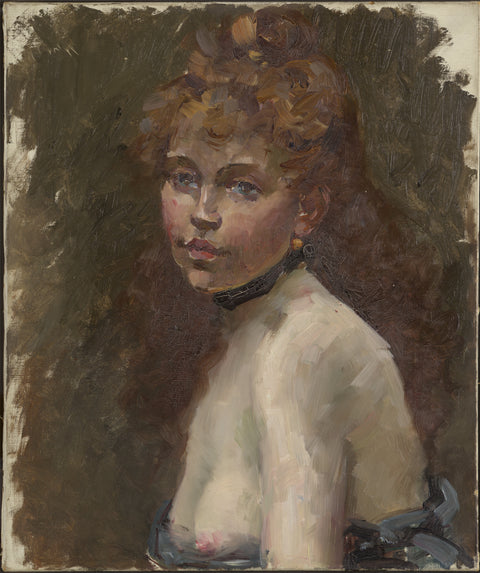
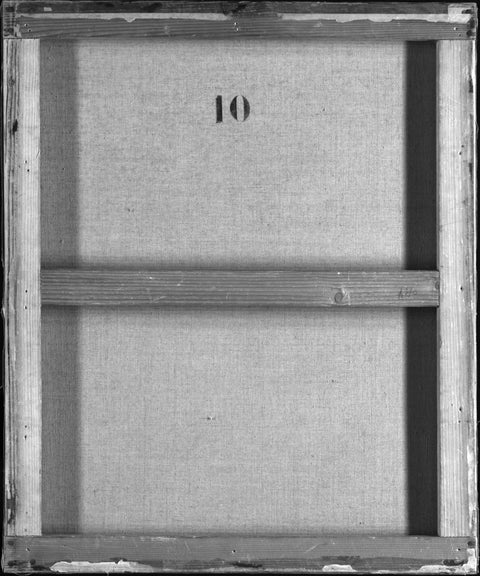
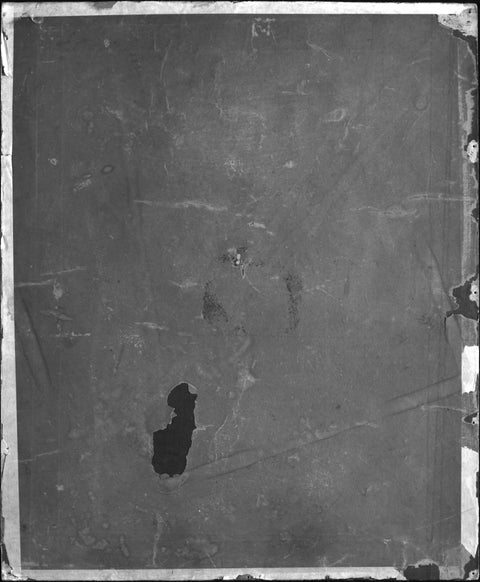
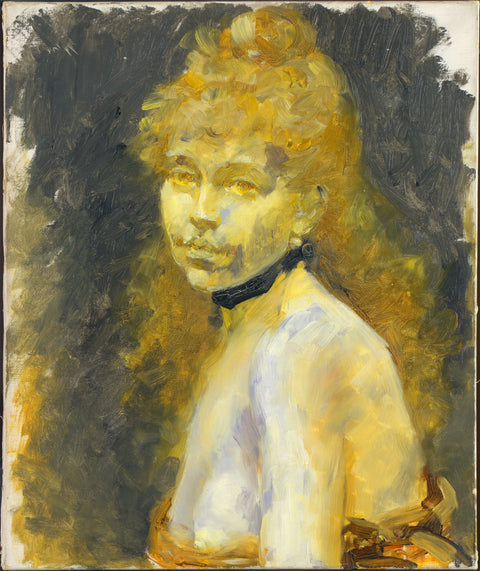
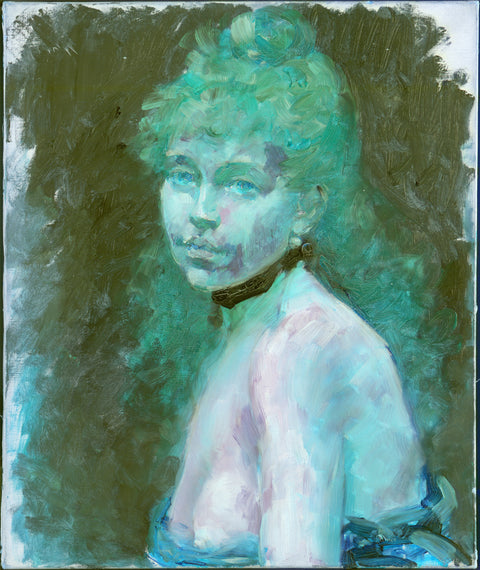
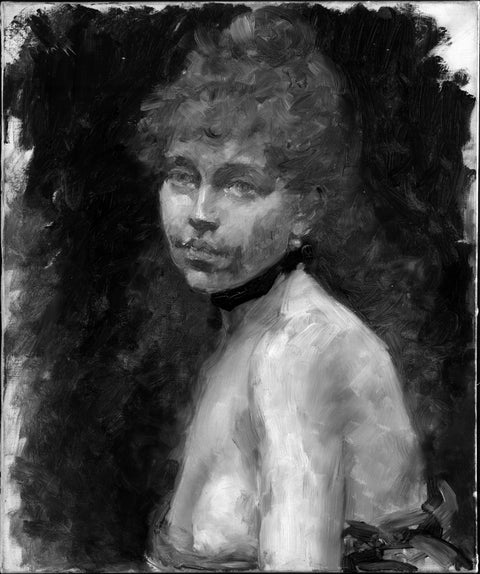
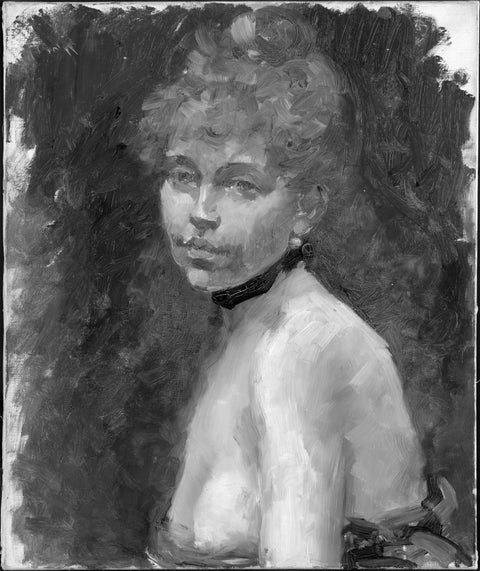
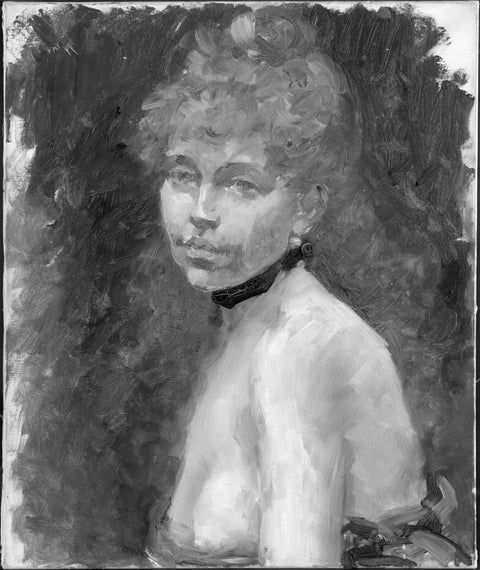
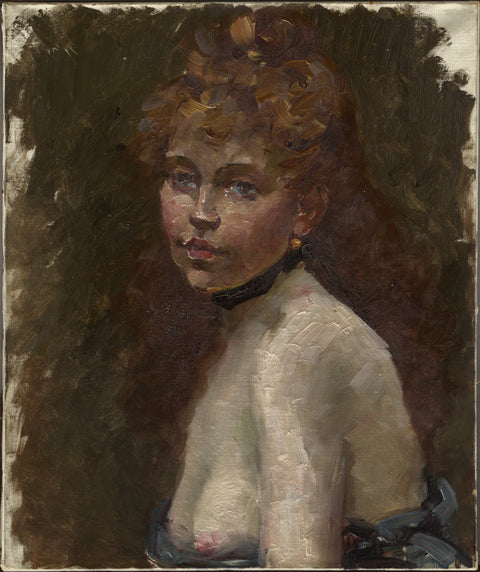
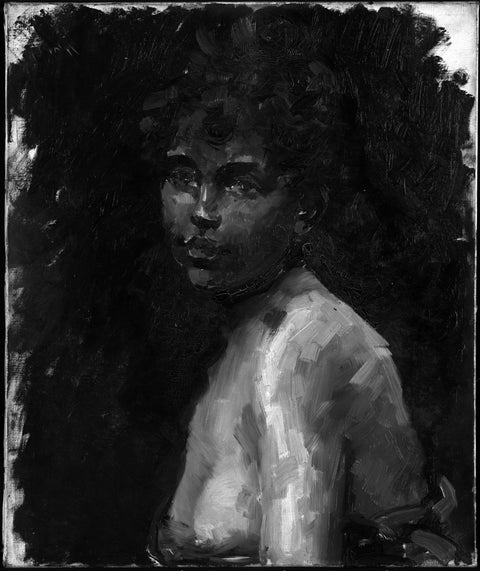
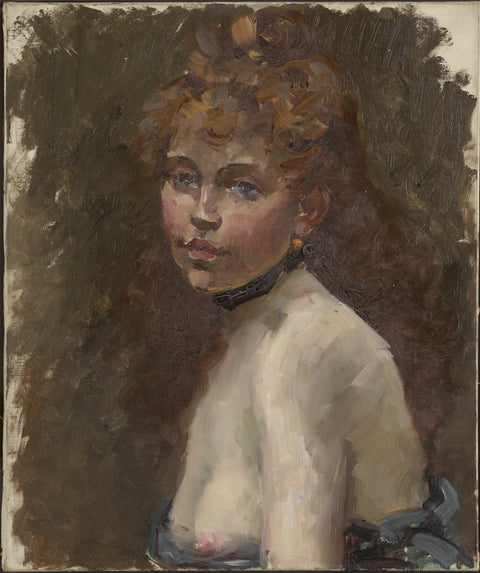
Edouard Manet portrait of Mery Laurent
£1,630,817.00
Choose variants
Select Title
Out of stock
Price
£1,630,817.00
Edouard Manet portrait of Mery Laurent

Edouard Manet portrait of Mery Laurent
Oil on Canvas 55,5 cm x 46 cm
PRICE ON REQUEST
A Swiss antiques dealer believes he has found an unsigned work of master impressionist Edouard Manet, but has run into a brick wall in the labyrinthine corridors of the art world in his bid to get the painting recognised. Jules Petroz and his wife Aicha made the discovery at Geneva's Plainpalais flea market in 1997. "I'd seen this ordinary pastel-on-paper sitting on the ground for some time. No one wanted it," he said. But this time I noticed a small tear in one corner and glimpsed what appeared to be an oil painting underneath. I hid my excitement and bought it for 15 Swiss francs (10)." Back home, he ripped off the pastel and he and Aicha gasped at the quality of a painting that revealed a red-headed beauty with bare breasts. Petroz, who freely admits he is not an expert on impressionists, immediately took the painting to the Geneva offices of Christie's and Sotheby's. Both houses pronounced it a likely masterpiece and said it resembled the work of Edouard Manet. But they stressed the only way it could be sold or auctioned was to get a certificate of authenticity from the Wildenstein Foundation in Paris, which has exclusive rights to attribute the works of the 19th-century master. Petroz immediately wrote a letter to what he would discover was one of the world's most powerful and secretive art houses. He enclosed an enlarged photograph of the painting and offered to pay all expenses if Daniel Wildenstein would come to Geneva to inspect it. Wildenstein's response to Petroz reads in part: "Unfortunately in my opinion the painting you have sent me is not a work of Manet. It resembles the work of a later painter, about 1900, for it certainly does not lack in quality." Four years later, Daniel Wildenstein died at the age of 84, leaving his vast collection of impressionist paintings estimated at around eight billion dollars to his sons Guy and Alec. But a few months later, Petroz received a visit from leading Paris art dealer Charles Bailly. "He came to my apartment to see the painting but gave no reaction and made me no offer at that time." Bailly called again a few months later. "He said he would be at the Geneva airport that afternoon. 'Bring the painting!' ... But it was too late to get it out of the bank vault. "I went anyway and he told me 'I know who painted it. Give it to me for six weeks. It should be worth around 3,000,000 francs (about 450,000). I will give you half. Take it or leave it.' I asked him who the painter was but he said he couldn't tell me, so I told him I would leave it." Bailly, who could not be reached for comment, has in the past denied making Petroz any offers for the painting. "Of course I'd like some money because I've never had much and if the Wildensteins wait long enough I may get hungry enough to sell it for less than it is worth. They can afford to play the waiting game. I don't know if I can," said Petroz. He noted that the last Manet sold at Christie's in May for $2.9 million. In the intervening years, Petroz has done a lot of research on the painting which he believes is of Mery Laurent, a courtesan who was the subject of many other Manets. He learned that Mery Laurent came by her unusual name because that was the way Dr. Thomas Evans, her British lover and dentist to French royalty, pronounced Marie. "Around 1874 Evans set Mery up in a building on the rue de Moscou not far from Manet's studio and around the corner from a canvas shop whose stamp is on the back of 'my' portrait. Coincidence? I think not." Petroz thinks Manet and Mery Laurent became lovers, something neither wanted their 'official lovers' to know about. He speculates this is the reason the painting was hidden or covered up and unsigned. The painting has also intrigued many art and antique dealers in Geneva and Paris, but when asked about the Wildenstein Foundation and its monopoly on authentication, they all refused to be quoted. One French dealer in the Louvre des Antiquaires in Paris, insisting on anonymity, explained only a work depicted in the Wildenstein Foundation's "catalogue raisonne" (complete works monograph) is considered authentic and without this seal of approval, no auction house or antique dealer will touch it. For the moment, it's not at all clear who will certify certain impressionist paintings following the death of Daniel Wildenstein. Sophie Pietri, a curator at the Foundation says there is a committee but when pressed, she referred to the Foundation's extensive files compiled in 1930. "Monsieur Petroz can always give us the opportunity to give his painting a closer examination including any new information he may have found," she said. But Petroz says he is afraid to take his painting across the border to France because of outstanding lawsuits against the Wildenstein family and allegations of selling stolen art to Nazi collaborators. The Wildensteins have called the allegations a misunderstanding, but recently lost a court case against American author Hector Feliciano, who first published the charges in his book "The Lost Museum: the Nazi conspiracy to steal the world's greatest works of art". Petroz has been advised by people in the art world either to hang the painting on the wall and enjoy it or to sell it for a few thousand euros. But he has decided instead to present it to art experts and the general public at Geneva's Grand Chapiteau antiques fair October 6-9 on the site where it all started, the grounds of Plainpalais. By Pamela Taylor; Copyright AFP 2005 Images Courtesy of the Petroz Collection.
